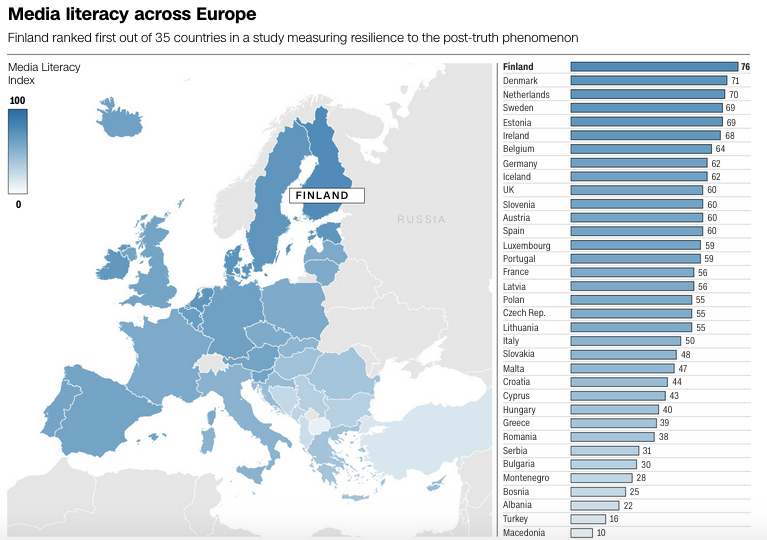Helsinki, Finland (CNN) – On a recent afternoon in Helsinki, a group of students gathered to hear a lecture on a subject that is far from a staple in most community college curriculums.
Standing in front of the classroom at Espoo Adult Education Centre, Jussi Toivanen worked his way through his PowerPoint presentation. A slide titled “Have you been hit by the Russian troll army?” included a checklist of methods used to deceive readers on social media: image and video manipulations, half-truths, intimidation and false profiles.
Another slide, featuring a diagram of a Twitter profile page, explained how to identify bots: look for stock photos, assess the volume of posts per day, check for inconsistent translations and a lack of personal information.
The lesson wrapped with a popular “deepfake” — highly realistic manipulated video or audio — of Barack Obama to highlight the challenges of the information war ahead.
The course is part of an anti-fake news initiative launched by Finland’s government in 2014 – two years before Russia meddled in the US elections – aimed at teaching residents, students, journalists and politicians how to counter false information designed to sow division.




